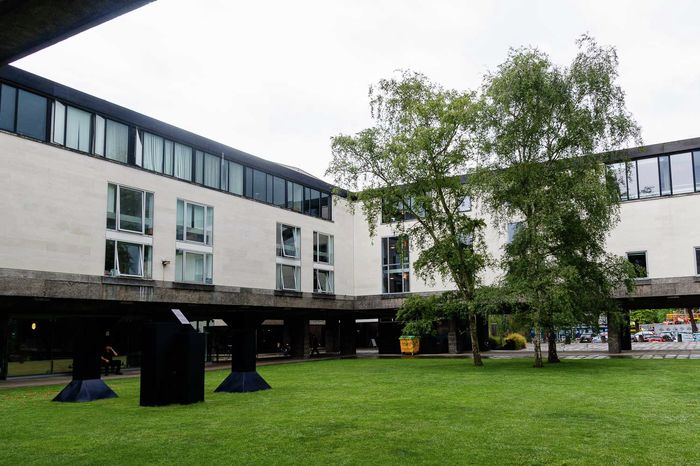Plagiarism concerns prompt law exam change
Exams have been reduced by 2 hours following concerns over academic misconduct

The Law Faculty has reduced exams by two hours for all years over concerns of academic misconduct.
A letter sent to all Law undergraduates at the end of September outlined the Faculty’s plan to continue online, open book exams but to cut down timing from five hours to three hours. The measure includes finalists, who have only ever taken five-hour online exams, implemented following the pandemic.
The letter seen by Varsity cited concerns of academic misconduct and poor academic practice as motivations for the decision. This year’s change is also explained as a return to the equivalent exam format pre-COVID.
Some finalists have criticised the move, with one telling Varsity “this changes the standard of essay we are expected to write. We have not had any practice with this type of essay and we now have to learn from scratch.”
Another student, who receives extra time and has seen their time reduced from 7 hours to 3 hours and 45 minutes, expressed concerns about the change. They stated, “it disproportionately affects students with extra time.”
The Faculty wrote that candidates spent too long cutting and pasting pre-prepared answers rather than answering the set question. “This fails to test the skills the exams are designed to test,” the letter reads.
The letter’s concerns also include plagiarism and collusion such as the use of AI, described as ‘under[mining] the integrity of the law degree’. An exclusive study by Varsity in April found that 47.3% of Cambridge students have used ChatGPT to help with their degree. However, only 7.3% of participants admitted they planned to use ChatGPT during their exams.
Students are concerned that the change will only incentivise poor academic practice. An anonymous source told Varsity: “I didn’t use any pre-prepared material in the five hour exams [last Easter] but reducing the time limit only incentivises doing so.”
The letter is co-authored by Stelios Tofaris, Director of Examinations, as well as Mark Elliot, the Chair of the Faculty, and the Examinations and Academic Secretaries. In it, they describe their decision as “the best way to address these concerns at the present time”.
The changes do not involve a return to in-person, invigilated, handwritten exams.“These do not reflect the way in which the vast majority of students work throughout the year,” the Faculty explained.
Finalists’ degree results will now comprise two modes of assessment, with second and third year both weighted at 50%.
Alongside the exam change, the Faculty is organising compulsory sessions on Good Academic Practice for all years, including talks on the use of artificial intelligence platforms.
As a final modification, word limits for exam scripts will now be indicative rather than previous absolute limits.
The Law Faculty has been contacted for comment.
 Features / Should I stay or should I go? Cambridge students and alumni reflect on how their memories stay with them15 December 2025
Features / Should I stay or should I go? Cambridge students and alumni reflect on how their memories stay with them15 December 2025 News / Cambridge study finds students learn better with notes than AI13 December 2025
News / Cambridge study finds students learn better with notes than AI13 December 2025 News / Uni Scout and Guide Club affirms trans inclusion 12 December 2025
News / Uni Scout and Guide Club affirms trans inclusion 12 December 2025 Comment / The magic of an eight-week term15 December 2025
Comment / The magic of an eight-week term15 December 2025 News / News In Brief: Michaelmas marriages, monogamous mammals, and messaging manipulation15 December 2025
News / News In Brief: Michaelmas marriages, monogamous mammals, and messaging manipulation15 December 2025








